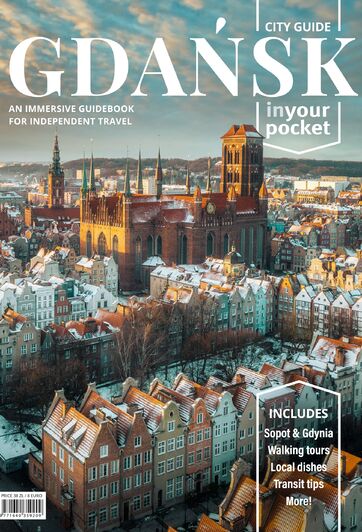Bishop Edward O'Rourke
more than a year agoFuture bishop Edward O'Rourke was born in 1876 and grew up on the family estate and having attended a Jesuit boarding school, he studied Economics and Theology at Innsbruck University in Austria. Ordained in Kaunas in 1907, he rose quickly in the Church, becoming Bishop of Riga in 1918. Following the extensive redrawing of Europe’s borders after the First World War, O’Rourke was sent on a special mission to the newly-founded Baltic States in 1920. Two years later, he took up the post of ‘apostolic administrator’ (quasi-bishop) in the Free City of Danzig (Gdańsk) where he would remain for the next fifteen years. In 1925, as a separate political entity, the Free City was given its own diocese with its seat in Oliwa cathedral with O’Rourke becoming its first Roman Catholic bishop.
O’Rourke arrived in Danzig during a period of high German-Polish tension when the mainly German-speaking Danzigers were not only very upset that the port had been separated from the German Reich and made an League-of-Nations-administered ‘Free City’ but feared that the newly-resurrected Polish state was attempting to gain political and economic control over Danzig. Such tensions also spilled over into the local Roman Catholic Church where the German-speaking majority resisted attempts by Danzig’s small Polish community to found their own Polish parish. During his first decade in the city O’Rourke sided with the German-speakers, even proposing in June 1931 to the Danzig Senate’s German nationalist president that there should be a ‘stepping up of anti-Polish propaganda in the Church.’
However, once the Danzig Nazi Party had taken control of the Senate in 1933, O’Rourke became one of the strongest allies of the Polish community in Danzig. With the Church now facing persecution by an external enemy, internal ethnic divisions in were set aside and the attitude of Bishop O’Rourke and part of the German-speaking clergy became more favourable towards the Polish community. Along with Irishman Sean Lester, the League of Nations’ High Commissioner in Danzig, O’Rourke was one of the very few independent voices prepared to publically criticize Nazi policies in the Free City. Of particular concern to O’Rourke were attempts by the Nazi Senate to absorb Catholic youth organizations and charities into Nazi structures and its pressure to completely ‘nationalize’ the Church in Danzig.
Despite the fact that Sean Lester was a Protestant and they initially had no common language except French, the two men became close friends and political allies. Both considered personae non grata by the Danzig Nazis, O’Rourke and Lester found a common affinity in their respect for human rights, their opposition to Nazism and their Irishness. Indeed, O’Rourke was intensely proud of his Irish ancestry, with Lester recalling in his diary how on their first meeting in 1934 the bishop came into the room ostentatiously carrying an Irish magazine and patriotically forcing himself to smoke ‘Irish’ cigarettes over his preferred Russian brand.
Once, however, Lester had been forced from his post in February 1937, O’Rourke’s became the last independent voice left in the so-called ‘Free’ City. With a section of the German-speaking Catholic clergy, along with the Nazis, openly opposing his support for the foundation of a Polish parish, O’Rourke finally resigned in October 1937, and moved to the Polish city of Poznan.
From then on, O’Rourke’s connections with Poland became stronger and stronger. Indeed, in 1939 he renounced his Danzig citizenship and became a Polish citizen before fleeing to Rome at the outbreak of the Second World War which, of course, occurred in Danzig. Although O’Rourke died in Rome in 1943, in recognition of his defence of the Free City’s Polish community during the Nazi period, his bones were reinterred in Gdansk Oliva Cathedral in 1972 and a plaque can be viewed there commemorating the event.
In fact, along with Sean Lester who had a plaque unveiled in his honour by Gdansk City Council in 2010, Gdansk is unique its commemoration of two men with Irish blood in their veins who stood up for the human rights of all of the Free City’s citizens in the face of Nazi totalitarian aggression.



Comments